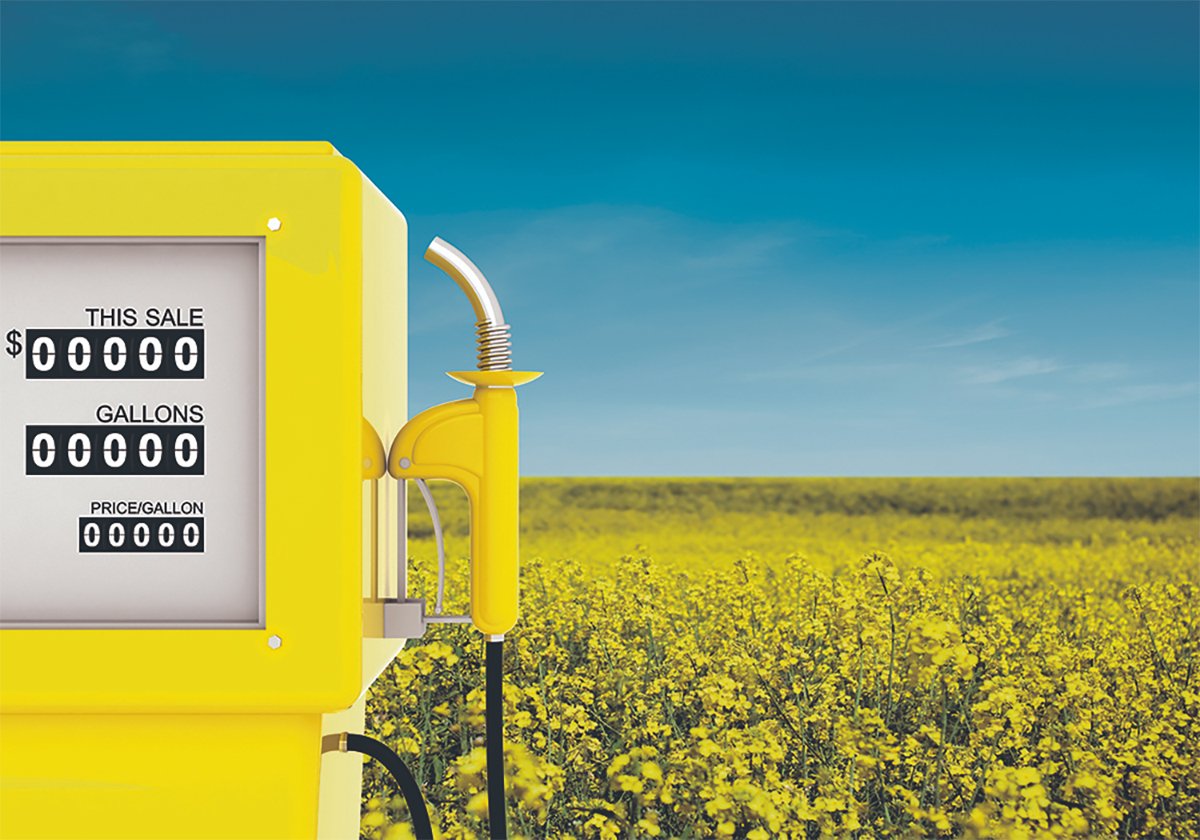Such a move to ease pressure on food supply could hurt canola demand, but Canadian sector says no reason to worry
Governments around the world are taking steps to limit oilseed-based biofuel production to keep food price inflation in check.
Germany plans to reduce the use of biodiesel produced from oilseed crops like canola, according to numerous reports.
EurActiv reports that details of a reduction in Germany’s cap on crop-based biofuels are being discussed between the country’s agriculture and environment ministries.
“Agriculture land is limited worldwide and we urgently need it for food as the war in Ukraine dramatically demonstrates,” Germany’s environment minister, Steffi Lemke, recently told a German newspaper.
Read Also

Biofuel sector happy with federal budget
Advanced Biofuels Canada says new Biofuel Production Incentive is a lifeline until CFR amendments are in place.
The European Union was Canada’s fourth largest canola market in 2021 and second biggest in 2020. Imported Canadian canola is used as a biodiesel feedstock in the EU.
Germany is the top biodiesel consumer in the EU, followed by France and Sweden, so talk of reduced biodiesel production in that country is worrisome.
However, it isn’t raising any eyebrows at the Canola Council of Canada just yet.
“I haven’t heard from anybody about the anticipation of reduced demand from Europe,” said council president Jim Everson.
He acknowledged that record high vegetable oil prices seem to be reigniting the food versus fuel debate but there are other things on the minds of politicians these days as well.
“Energy security and greenhouse gas reductions are also major public policy issues,” said Everson.
“Canola is a low-carbon, sustainably grown renewable fuel feedstock that helps reduce GHG emissions.”
He said energy security is particularly front and centre in the EU, which is looking at ways to reduce its reliance on Russian energy.
But at the same time, there are growing calls from non-governmental organizations to quell food price inflation by any means necessary.
About 14 percent of global vegetable oil production was used to make biodiesel in the 2017-19 period, according to the OECD. That is helping drive up food costs around the world.
The Canadian Foodgrains Bank and many other non-government organizations (NGOs) are sounding the alarm.
“The world is moving rapidly towards some of the most catastrophic food crises in the 21st century,” the foodgrains bank said in a recent news release.
According to the 2021 Global Report on Food Crises, 193 million people in 53 countries are acutely food insecure, up from 40 million in 2020.
More than half a million people in Yemen, Madagascar, Ethiopia, South Sudan and Somalia will likely soon die of starvation.
“As food prices are skyrocketing, people who didn’t have enough money to buy food before are accessing even less now,” foodgrains bank executive director Andy Harrington said in a news release.
And it isn’t only NGOs that are concerned. The Malaysian Palm Oil Board recently advised countries around the world to slow the use of edible oil as a biofuel feedstock to ensure adequate supply of vegetable oil for food use.
Yet the amount of vegetable oil being diverted to the biofuel sector is set to grow as the renewable diesel industry is poised for phenomenal growth in the United States and elsewhere.
The U.S. Department of Agriculture estimates 12 billion pounds of U.S. soy oil will be used for biofuel production in 2022-23, up from 10.7 billion lb. this year and 8.85 billion lb. in 2020-21.
Canola is close to being fully approved as a feedstock for the U.S. renewable diesel industry.
Canada’s proposed clean fuel standard is also expected to dramatically increase demand for canola-based biodiesel and renewable diesel.
But other markets are heading in the opposite direction. Norway, Sweden and Finland have reduced their blending mandates in response to surging food prices, according to Argus Media.
Brazil recently dropped its biodiesel mandate to 10 percent for 2022, down from what was supposed to be 14 percent starting in March.
















